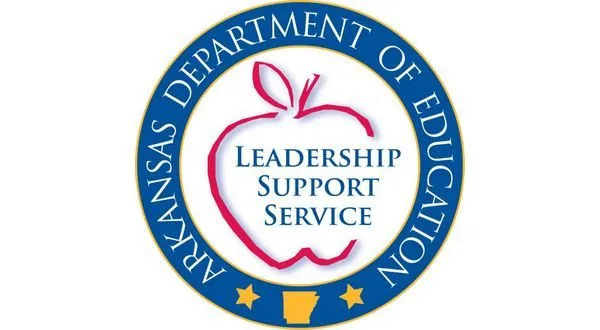
Arkansas preschool programs met eight of 10 benchmarks in a national early childhood education group’s analysis of the state’s pre-K efforts.
Some of the standards Arkansas meets are class sizes of 20 children or fewer, at least one teacher per every 10 students, specialized pre-K training for teachers and “comprehensive, aligned, supportive, culturally sensitive” early learning and development standards, according to the National Institute for Early Education Research (NIERR), housed at Rutgers University.
Arkansas falls short in its early childhood education degree requirements and annual staff professional development, the report noted. Arkansas does not require all early childhood educators to hold bachelor’s degrees, and the state requires a minimum of 15 hours of professional development per year while the report says at least 30 should be required.
Arkansas ranked 31st nationwide in state spending on early childhood education during the 2023-24 school year, and its spending per student decreased while its enrollment of 3- and 4-year-olds in pre-K remained steady, according to NIERR’s nationwide analysis of state preschool programs released Tuesday.
The state’s preschool program, Arkansas Better Chance (ABC), serves children ages 3 and 4 from families earning up to 200% of the federal poverty level. ABC enrolled 20,311 children during the last school year, accounting for 19% of 3-year-olds and 32% of 4-year-olds statewide, according to the NIERR report.
While ABC enrollment increased by 1,063 children compared to the previous school year, overall spending decreased by more than $43 million, and spending per student decreased by $2,564, with those figures adjusted for inflation, the report states.
Arkansas spends $2,016 less per student and nearly $41 million less overall than what the report considers “adequate” for its early childhood education landscape. The report defines adequacy as enough money to “support minimum quality standards and provide K-12 pay parity for preschool teachers within their current operating structures.”
The starting annual salary for Arkansas’ K-12 teachers increased from $36,000 to $50,000 in 2023 due to the wide-ranging LEARNS Act. This pay disparity between educators who teach 5-year-olds as opposed to 4-year-olds makes it challenging to maintain a robust pre-K workforce, early childhood education administrators told the Advocate in November 2023.
Arkansas has not implemented any “statewide initiatives or minimum set pay” to bolster the early childhood education workforce, which not only affects the overall quality of the system but also forces some preschool educators to rely on public assistance to meet their needs, Nicole Carey, policy director for Arkansas Advocates for Children and Families, said in an interview Monday.
State spending per child enrolled in pre-K was at its lowest in nearly two decades during the 2023-24 school year, according to the NIERR report. Spending spiked during the COVID-19 pandemic but has since dropped, and it saw little change and no upward trend during most of the 2010s. Meanwhile, Arkansas’ rates of child enrollment in pre-K have returned to their pre-pandemic levels after decreasing in the early 2020s, according to the data.
“It would be great if we could have additional state investment in the ABC program, either toward educator wages or other types of workforce support,” Carey said.
Arkansas Democratic lawmakers introduced a bill this year that would have created a tax credit for early childhood educators, and a Republican-sponsored bill would have created a similar policy for “a licensed childcare provider.” Neither bill advanced.
Eleven states met nine or 10 of the NIERR standards, and none of those 11 states were “low spenders” because “money does matter for quality,” Steve Barnett, NIERR’s senior director and a co-author of the report, said in a virtual press briefing Friday.
Overall, Arkansas ranked 8th nationwide in 3-year-olds enrolled in pre-K, while 15 states do not have pre-K programs for 3-year-olds at all, according to the report. Arkansas ranked 24th in enrollment of 4-year-olds.
Additionally, 5% of 4-year-olds and 7% of 3-year-olds in Arkansas were enrolled in the federally-funded Head Start program in 2023-24, while 15% of 4-year-olds and 4% of 3-year-olds were enrolled in special education, the report states.
Arkansas has 28 Head Start locations statewide. Federal employees who administer Head Start have faced recent layoffs, but changes on the federal level have not impacted the program in Arkansas, said Leslie Taylor, spokesperson for Head Start’s Arkansas grantee, the University of Arkansas for Medical Sciences.
The state Department of Education oversees the Office of Early Childhood, which was under the jurisdiction of the Department of Human Services before the LEARNS Act went into effect in 2023. The law also required “local lead” organizations throughout the state to assess local and regional access to pre-K and what gaps or barriers should be addressed.
Most of the local lead organizations are education cooperatives, along with some school districts and child care organizations, according to the Department of Education.
AACF is “hopeful” that local leads will create “positive growth” in their areas, Carey said.
“For the local leads that I’ve spoken with, they have put in a lot of work and are doing a good job trying to connect with their communities,” she said.
To view this story, or for more news updates from Arkansas Advocate, click here.
WebReadyTM Powered by WireReady® NSI










